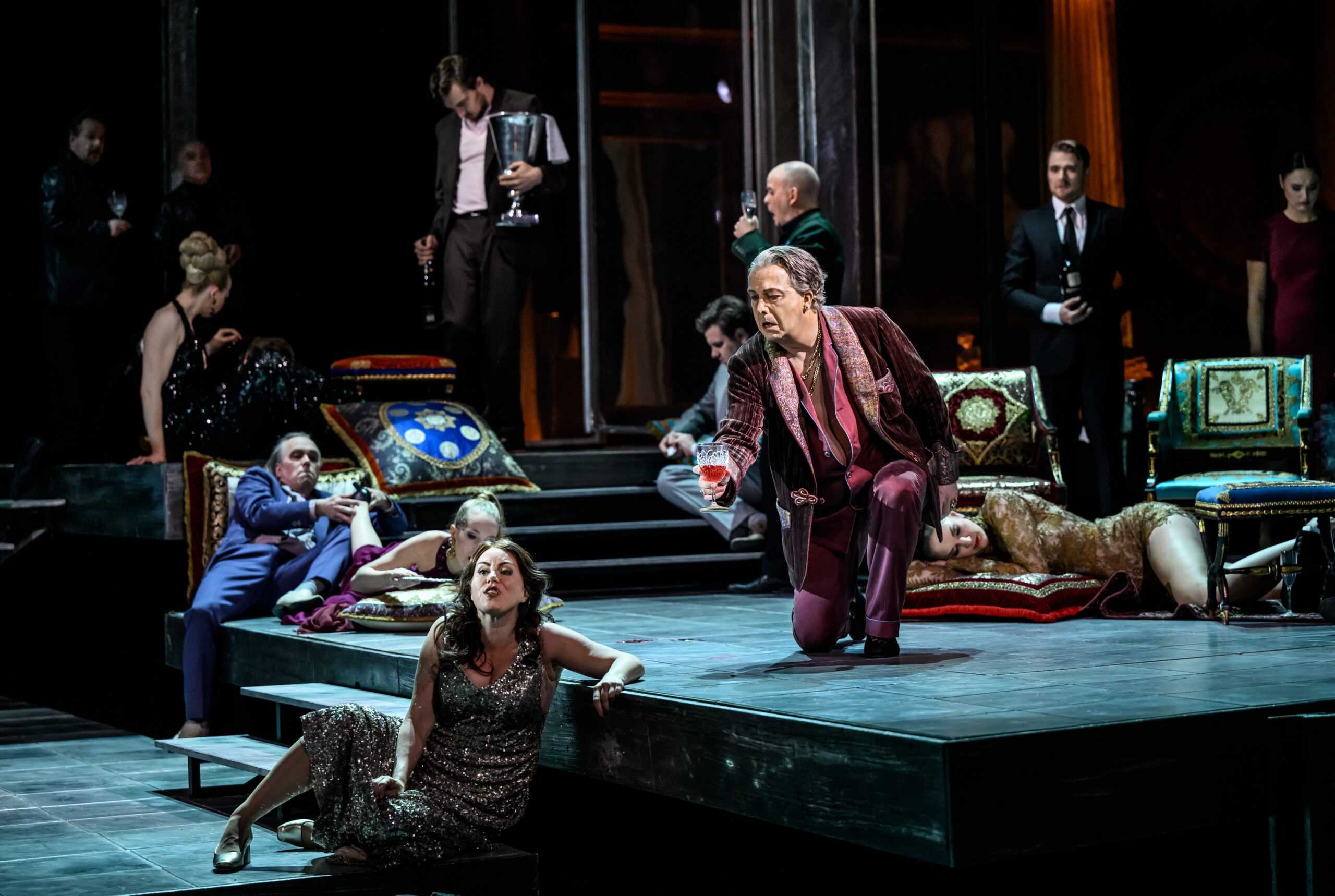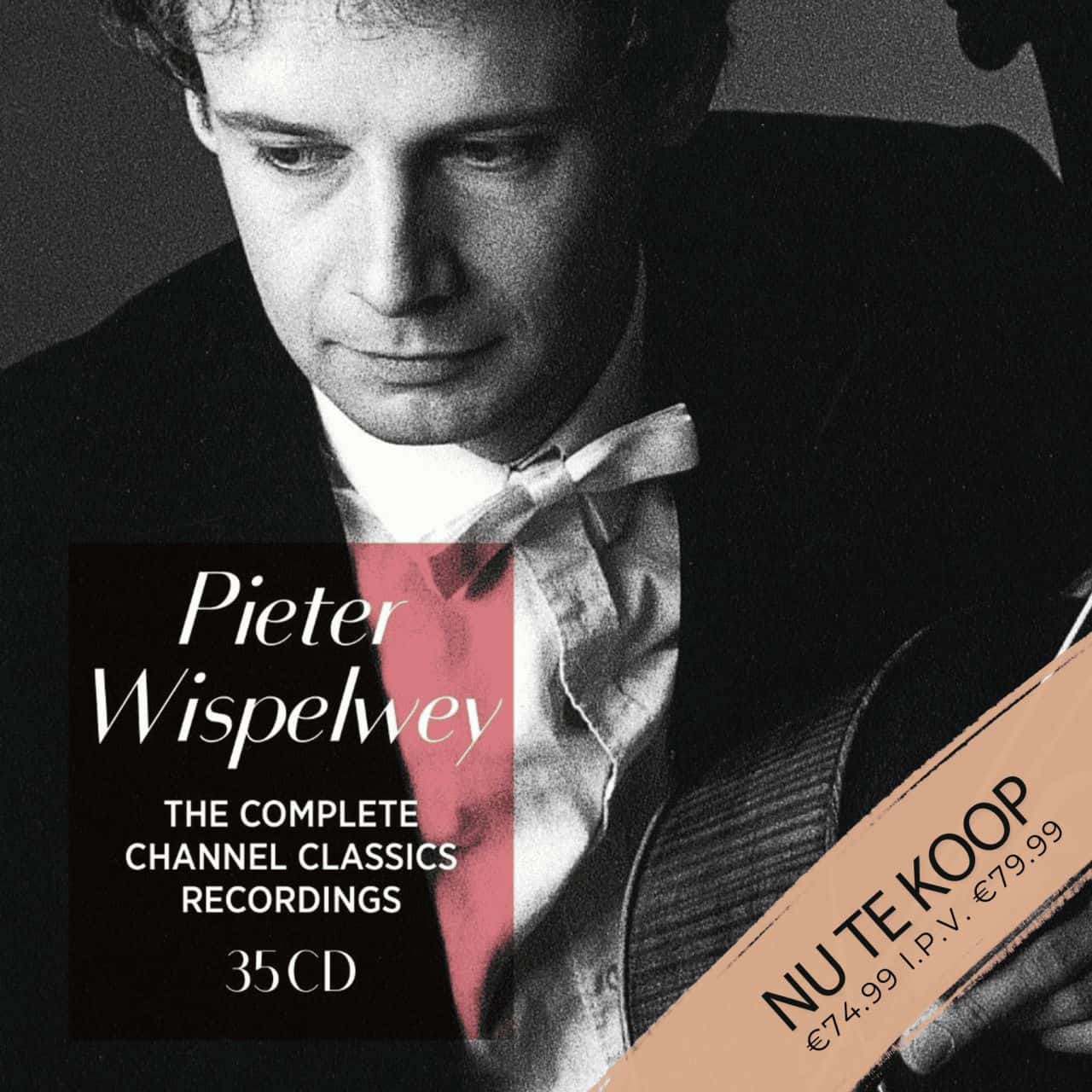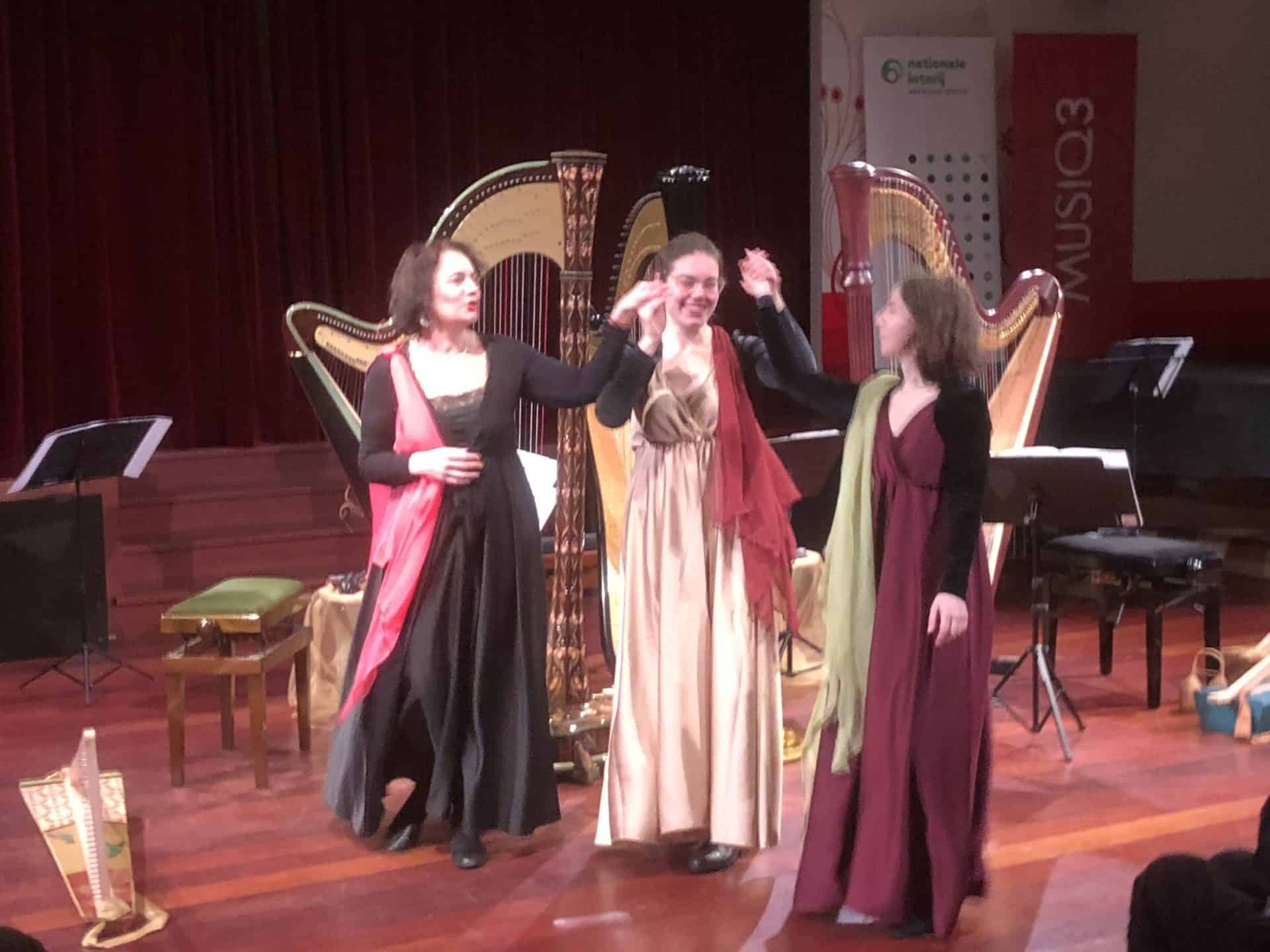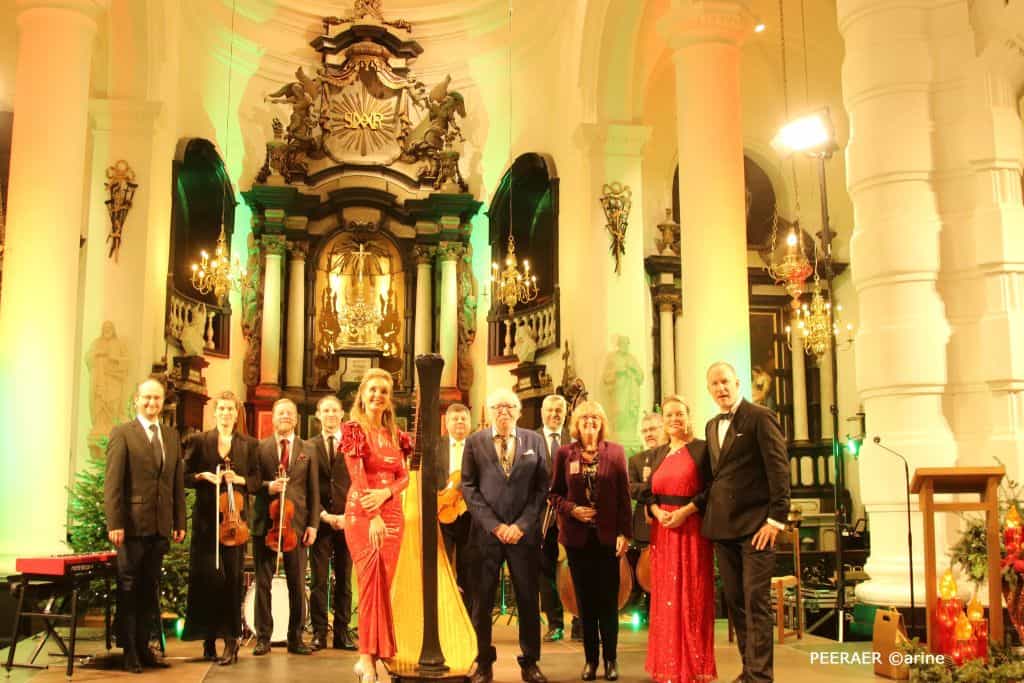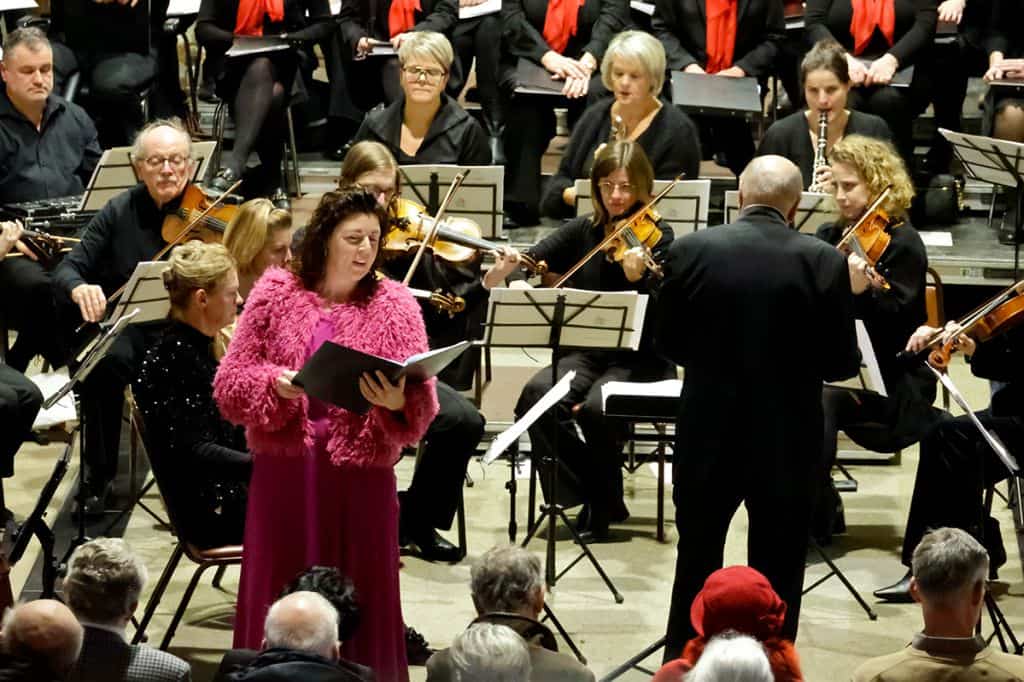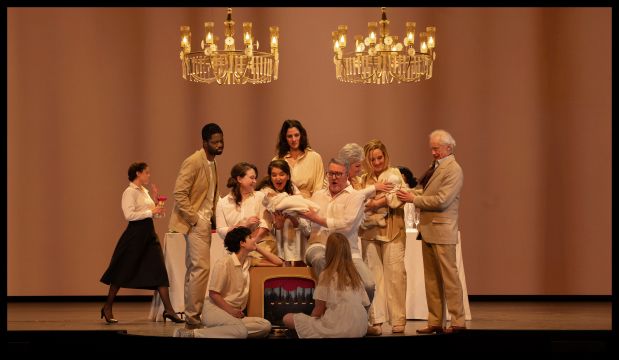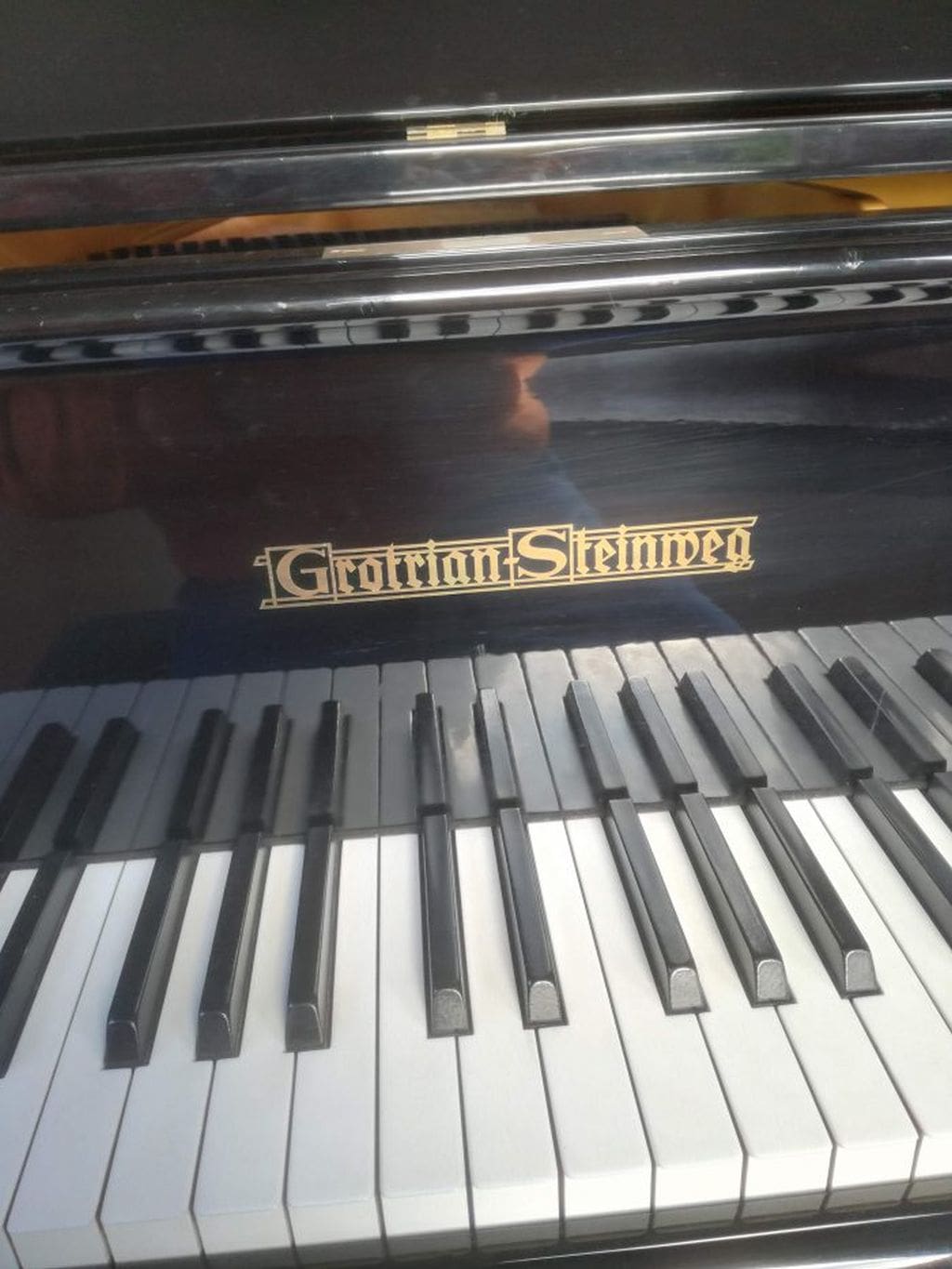Being on hiatus for a short while (due moving to Sweden for five months), I have yesterday finally managed to indulge myself again in the genre nearest to my heart: opera. And what an indulgence it was. Singing praise of the quality of Swedish cultural life, I’ll start with giving Salomé (Richard Strauss, 1905) its accolades.
Salomé is performed at the Kungliga Operan in Stockholm. Brought to life under the mastery of conductor Alan Gilbert, and executed by the vocal talents of soprano Elisabet Strid (Salomé), Lukasz Golinski (Jochanaan) and Jesper Taube (Herodes). Salomé is a composition that combines different kinds of mad: madness in lust, religion, riches, it all is encompassed in this one act opera. And let’s just say, the deranged was certainly touchable – in a masterly fashion!
The age of decadence
Let’s not beat about the bush: decadence in music and art was in full swing in the early twentieth century. Strauss’ Salomé, based on the eponymous play by playwright Oscar Wilde, is undeniable a product of its time: sexuality, extreme religious fervor, murder, insanity – it is al to be found in this opera. Ever heard of the infamous Dance of the Seven Veils? Look no further, this is where it (musically) originated from! To cite Rachel Shteir: […] Salome was not a woman at all, but a brute, insensible force: Huysmans refers to her as “the symbolic incarnation of undying Lust … the monstrous Beast, indifferent, irresponsible, insensible” […]” (Shteir, Striptease: The Untold History of the Girlie Show, 2004). Strauss’ beautifully translated the work into certain musical motifs: look for the dissonance growing in Salomé’s voice, Jochanaan’s echoing, dark consonance, and Herodes’ wild, disjointed parody motifs. If it is not said in words, it is certainly said by music!
© Kungliga Operan / Sören Vilks
© Kungliga Operan / Sören Vilks
© Kungliga Operan / Sören Vilks
© Kungliga Operan / Sören Vilks
© Kungliga Operan / Sören Vilks
Spoiled… or mad?
Returning to Stockholm: the performance was certainly a cumulation. This critic spend the whole performance ogling Strid’s Salomé, wondering if she was mad, or just spoiled rotten. The answer seems to lie somewhere in the middle (and I will return to this later). Vocally it was a male-dominated show. Golinski and Taube carried a significant portion of the performance. Both of them contrasted beautifully with Strid’s unhinged vocal performance.
But, before the men are praised, let’s just say: the jumps and leaps between voice and speech performed by Strid were masterful. “Es ist kein Laut zu vernehmen/Ich höre nichts./Warum schreit er nicht, der Mann?” she sings in an eery, foreboding whispery tone. This for me was the moment total madness arrived – all the rest were appetizers, this was the main course. Strid’s Salomé gets sandwiched between the booming bass tones of Golinski – who’s resonance from the deep was an almost religious experience in itself – and the vocal dynamics of Taube. His Herodes sounded like a walking, dirty parody – I’d say mission accomplished. This trio each brought their own particular skillset, and made their personas touchable, yet larger than life.
The very understated, but nevertheless suggesting set – the play between the outdoor griminess and indoor decadence was certainly appreciated – by Lars Åke Thessman reminded this critic of another strong set design: Robert Carsen’s version of Verdi’s Il Trovatore (Covent Garden Opera House, 2016). Now, returning to the infamous dance. This moment is what seems to turn Salomé from spoiled to downright mad. There is no way to beat about the bush: it was sexual assault visualized – which was the point, pretty sure. It helped to establish the breakdown of Salomé, and the hypocrisy of the ending. It also brought a famously sexualized scene from the age of decadence to the #metoo-era. It was felt in the core – and might have needed a trigger warning – of the performance, and helped to establish even more the vocal descent heard in Strid’s voice: by all means, she was used, abused and mad by the end of the dance. Herodes’ “Man töte dieses Weib [Salomé]!”, as last phrase of the opera, is the hypocritical cherry on top (and was beautifully vocally spat out by Taube).
A downright masterful performance, which this critic is happy to have seen. Simply said: bravo to the Kungliga Operan, and its performers, for bringing Salomé anno 2023!
WHAT: Salomé (1905) by Richard Strauss
WHO: Alan Gilbert (conductor), Sofia Adrian Jupither (director), Lars Åke Thessman (scenography)
VOICES: Jesper Taube, Katarina Karnéus, Elisabet Strid, Lukasz Golinski, Jonas Degerfeldt, Kungliga Hovkapellet
WHERE: Kungliga Operan, Stockholm, Sweden
WHEN: June 3, 2023 – performing till June 8, 2023


